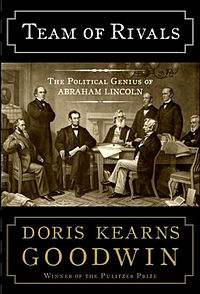Given that I’m a youngster, and typically date people significantly older than I, I’ve been nicknamed Lolita by more than one person in my life. It’s flattering to a degree, but mostly creepy. Nonetheless, I like the nickname because it’s an indication that the nickname-giver reads Russian novels.
When I first read Nabokov’s Lolita, I devoured it. I always keep a book in my purse and during my breaks at work, I would sneak into the back corner of the employee lounge with my latte and read about Humbert.
For those who don’t know the story, Lolita is about a man, Humbert Humbert, and his love for the little girl, Lolita. It’s a story of lust and abuse and coercion and pedophilia. But it’s a love story, too.
I realize that I sound like a freak talking about such a terrible subject. But there’s a reason why the book is considered a contemporary classic; Nabokov’s writing is sensational. The book, written from Humbert’s perspective, manages to take the readers morals, stick them in a blender and hit puree.
Terrible as it is, I found myself rooting for Humbert in his reckless pursuit of Lolita. After all, she loved him, right? It wasn’t until I started discussing the story in a group setting that I realized how loony I sounded. I, the reader, was coerced because I was only looking at the story through Humbert’s perspective and narration. I failed to consider Lolita’s story.
But Lolita’s story is out, under the “pen name” Margaux Fragoso. Just kidding… kind of. In Fragoso’s recently released memoir, Tiger, Tiger she recants her relationship with Peter. Peter provided her a loving environment, an escape from reality. And he provided her love, from the time she was 7, when she met him, until she was 22, when he killed himself.
Written with a mix of the naivety of an abused child and the wisdom of a retrospective woman, the tale is chilling, to say the least. I’m only six chapters in, and already hooked. I think what strikes me most about Fragoso’s writing is that it’s so emotionally removed and jaded.
She describes spending time with Peter as being “like a drug high.…They can make the child’s world ecstatic somehow. And when it’s over, for people who’ve been through this, it’s like coming off of heroine and, for years, they can’t stop chasing the ghost of how it felt.”
While Nabokov’s novel swept me up in the passion of the moment, the normal-ness with which Fragoso describes innocently kissing a middle aged man (when she was 7) has the same jarring effect.
I’ll keep you posted as I work my way through her older years. But woah.
 |
| Margaux Fragoso’s Tiger, Tiger, $26 |










